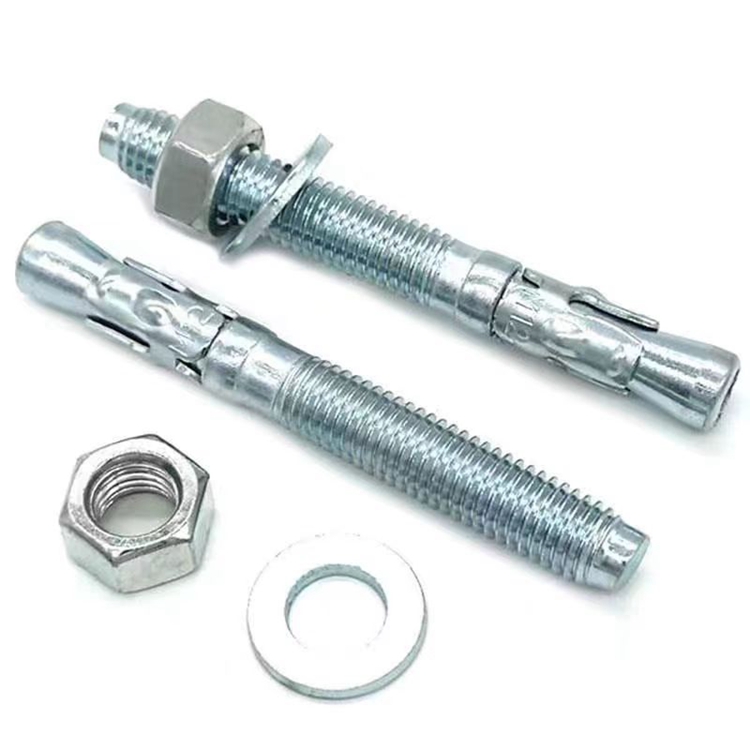High Strength Stud Bolt Manufacturing Facility for High Pressure Applications and Industrial Standards
Aug . 05, 2024 15:59 Back to list
High Strength Stud Bolt Manufacturing Facility for High Pressure Applications and Industrial Standards
The Importance of High Pressure Stud Bolt Factories
High pressure stud bolts are critical components in various industrial applications, particularly in sectors such as oil and gas, power generation, and chemical processing. These bolts are designed to withstand extreme pressures and temperatures, ensuring the integrity and safety of machinery and structures. As a result, the role of high pressure stud bolt factories cannot be overstated. They are essential for the production of these robust connectors and for maintaining industrial efficiency and safety.
Manufacturing Process
The production of high pressure stud bolts involves several critical stages, including material selection, forging, machining, and surface treatment. The materials used must be high-strength alloys that can endure severe conditions without deforming or failing. Common choices include carbon steel, stainless steel, and other specialized alloys that provide superior resistance to corrosion and high temperatures.
Once the materials are selected, the manufacturing process begins. Forging is often the first step, where raw material is shaped under high pressure. This process aligns the grain structure of the metal, enhancing its strength and durability. Following forging, precision machining is done to achieve the exact dimensions and threading required for the bolts. This stage is crucial because even minor deviations can lead to catastrophic failures in high-pressure environments.
After machining, the bolts undergo surface treatment processes, such as heat treatment and coating, to improve their performance characteristics. These treatments enhance the bolts' hardness and resistance to wear and corrosion, preparing them for their rigorous applications.
Quality Control
high pressure stud bolt factory

In a high pressure stud bolt factory, quality control is paramount. Given the potential consequences of a bolt failure, manufacturers implement stringent testing protocols. Each batch of bolts is subjected to various examinations, including tensile strength tests, impact tests, and non-destructive testing methods like ultrasonics and dye penetrant inspection. These procedures ensure that the bolts meet or exceed industry standards and are safe for use in high-pressure systems.
Furthermore, certification processes play a significant role in the production of high pressure stud bolts. Factories often seek accreditation from relevant standards organizations, demonstrating their commitment to quality and safety. Achieving certifications such as ISO 9001 not only enhances the credibility of the manufacturer but also instills confidence in clients and stakeholders regarding the reliability of their products.
Innovation and Sustainability
As industries evolve, so too must the factories that serve them. High pressure stud bolt manufacturers are increasingly adopting innovative technologies to enhance their production capabilities. Automation and advanced manufacturing techniques, such as additive manufacturing, are being explored to improve efficiency and reduce waste. These advancements not only streamline operations but also contribute to sustainability efforts within the industry.
Moreover, there is a growing emphasis on eco-friendly practices. Many factories are developing sustainable materials and processes that reduce the environmental impact of manufacturing high pressure components. This shift not only meets regulatory requirements but also aligns with the global movement towards greener manufacturing practices.
Conclusion
High pressure stud bolt factories play a vital role in supporting various industries by providing reliable, high-quality fastening solutions. Their commitment to rigorous manufacturing standards, quality control, and innovation ensures that they meet the demanding requirements of modern applications. As industries continue to face new challenges, these factories will remain at the forefront of technological advancements, contributing to safer and more efficient operations worldwide. The ongoing development in this field not only enhances industrial performance but also promotes sustainability, paving the way for a more responsible manufacturing future.
Latest news
-
Reliable Axle Nuts Supplier | High-Quality Automotive Parts
NewsAug.19,2025
-
Premium Wire Bolts Suppliers | Durable & Reliable Fasteners
NewsAug.18,2025
-
Leading Metric Wood Screw Companies & Manufacturers
NewsAug.17,2025
-
Top Wire Bolts Suppliers - Quality & Durable Fasteners
NewsAug.15,2025
-
Trusted Wire Bolts Company | Quality Fasteners Supplier
NewsAug.14,2025
-
Reliable Wire Bolts Suppliers & Manufacturers for Global Needs
NewsAug.13,2025
